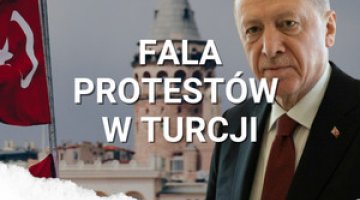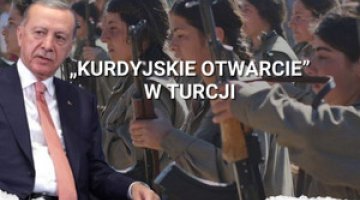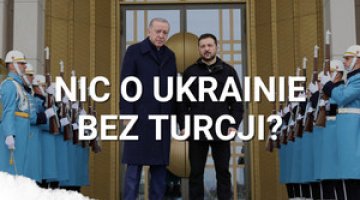The G20 summit – Turkey’s failed return to the Middle Eastern game
Cooperation: Mateusz Chudziak
The G20 summit, held on 15th – 16th November in Antalya, was meant to provide Turkey with an opportunity to demonstrate its international role, particularly in the Syrian context. Although Turkey has called for measures to be taken against the Assad regime or for the autonomy of Syrian Kurds to be limited, these have always been treated with caution. Following the terrorist attacks carried out by Islamic State (IS) in Paris they have been pushed further aside. Thus Turkey’s Middle Eastern policy is in an impasse and strategic divergences in its relations with the West (the US, the EU) have been growing.
The G20 – waiting for a breakthrough
Turkey had assumed that the G20 summit would confirmed Turkey’s strong position among the world’s most powerful states and provide the impetus to regain the initiative in key regional issues, particularly regarding Syria. The summit was held two weeks after the sweeping victory of the ruling Justice and Development Party (AKP) in the parliamentary election which strengthened the new government’s mandate and ended several months of political crisis (provoking fear, particularly in the West). In recent months Turkey has also become a key player in the search for a solution to the migration crisis in the EU. Furthermore, the deterioration of the situation in Syria (including the growing problem of terrorism, Russia’s intervention) and Turkey’s anti-terrorist campaign (which is partly directed against IS) have given hope that Turkey would be regarded as an essential partner in settling the Syrian problem.
Were Turkey’s assets on the international arena to be fully taken advantage of this would have important internal consequences. It would contribute to increasing internal stability, favour settlements with Kurds which would benefit Ankara and improve the climate for investments.
In its agenda for the summit Ankara repeated the premises it has held for years: the civil war in Syria is the root cause of the problems and the Assad regime has played a vital and negative role in it. As the migration crisis and terrorism are results of this state of affairs it is of the utmost importance that the root cause be removed, i.e. Assad must be removed from power. Turkey has hoped to push through, with the participation of other players, the idea of establishing a security zone in northern Syria in order to weaken the regime and thus also Syrian Kurds (Turkey sees it as a chance to reduce the influx of migrants to Turkey and the EU). As for Kurdish autonomy in Syria Turkey perceives it as a threat to Turkish national interests and deems Kurdish activity (PKK, Syrian PYD) to be a terrorist threat that is equal to that of IS. This logic led to expectations that the G20 summit (especially the Western countries) would recognise Turkey’s particular role in the region.
Dashed hopes
The West has always distanced itself from the Turkish perspective (the issue of Turkey’s role in the Syrian conflict and the security zone) or approached it with reluctance (its attitude to Syrian Kurds) and this problem has worsened following recent events. The summit was held in the shadow of the Paris attacks for which IS has claimed responsibility (furthermore, on 31st October IS-linked radical militants had downed a Russian passenger jet), while Russia’s role in the Syrian conflict has increased (they have been carrying out a military operation there since 30th September). All this has shifted the focus of participants onto the terrorist threat from IS and the bulk of the G20 discussions were devoted to this subject, while the Turkish calls to fight Assad or to combat Kurdish terrorism were ignored. Furthermore, the day before the summit another meeting regarding the settlement of the Syrian conflict was organised in Vienna and a plan for a peace process spanning two years was drafted. Ultimately it was not ruled out that Assad could remain in power during those two years (see Appendix).
The G20 discussion on the issue of ending the Syrian crisis could not therefore have been dictated by Turkey.
The G20 summit, contrary to Turkey’s intentions, both revealed and consolidated trends unfavourable to Turkey. IS remains the essential problem for the West, and Russia, moving out of isolation, is becoming the main partner in the talks. It was the conversation between President Obama and President Putin which was to become the most important image of the G20 summit covered by the media. During the summit Putin even went as far as to suggest that Turkey is supporting IS financially (through the trade of oil between IS and Turkey). The Western countries have ruled out a ground operation in Syria and they will undoubtedly continue supporting Kurds (Russia has also suggested it could back them). Discussion of the migration crisis, which is at present Turkey’s main card in its relations with Western countries, was shunted to a special Turkey-EU summit to be held in Brussels towards the end of November (the EU reiterated declaration it made in October of financial support for Turkey and of an acceleration of its accession process). The Russian and Turkish presidents discussed contentious Turkish-Russian issues with the participation of the respective heads of diplomacy and the head of Turkish intelligence. It was also agreed that these talks will continue at a special summit in Moscow to be held in December (despite serious controversies surrounding Syria after the talks it was suggested that economic co-operation, including on gas, should be further developed). In both cases the issues which were important for Turkey were moved to a bilateral level.
Conclusions
The G20 summit has once again revealed the paradoxical situation Turkey is in on the international arena and especially on the regional arena. Turkey has huge potential and ambitions to shape the situation in the region and have a global impact. Turkey has been bearing tangible costs due to its involvement in the Syrian conflict, including internal costs. However, putting this to one side, throughout nearly all the Syrian conflict Turkey has been on the sidelines of the political game that Western countries have been leading. This is due to both the specific and strategic visions that Turkey has been dogmatically implementing and the importance it attaches to their selected elements (the issue of Kurds). The dogmatism of Turkish politics, the limited possibilities of engaging in independent actions, the growing differences between Turkey and the West in assessing threats (for the West it is IS, for Turkey it is mainly the Kurds and Assad) and solutions (unlike Turkey, the West sees the Kurds and Russia as real or possible allies) lead to the assumption that the deadlock in Turkey’s regional policy will continue.
The present situation is the cause of large frustration for Turkey, and one of the main reasons for this is the attitude of the West, on whose support Turkey is relying. At present (as was the case in previous months) the migration crisis remains Turkey’s main bargaining chip in its relations with the EU. It may be presumed that, in seeking to consolidate its position, Turkey will assume a tough negotiating stance towards the EU. On the other hand, despite a serious conflict of interests in its relations with Russia, not only will Turkey avoid open confrontation, it will also continue negotiations, not necessarily binding, about the development of gas co-operation. It may also be expected that in the immediate future no fundamental shifts will be made in Turkey’s policy towards Syria. Ankara’s priority remains to weaken the position of the Syrian Kurds and to challenge solutions which would affect Turkey’s position in the conflict (maintaining and legitimising, even temporarily, the Assad regime). Any independent and direct military action that Turkey takes in Syria will either be on a very limited scale (one-off attacks against Kurdish and IS targets) or in response to s radical change in the situation in Syria, for example a Kurdish offensive in the border area.
Appendix
The agreement of the International Syria Support Group – Vienna, 14th November
During the group’s meeting in Vienna, a framework plan for solving the Syrian conflict was developed. The talks were attended by representatives from Russia, the US, the UK, Germany, France, Turkey, the opposition Syrian National Council and other countries from the region (including Jordan, Saudi Arabia, and Iran).
The plan spells out the necessity of a common fight against terrorism. IS and Jabhat al-Nusra (affiliated to Al-Qaeda) have been recognised as the most dangerous terrorist organisations. Jordan has been assigned the task of coordinating the work on preparing the list of the remaining terrorist groups.
Under the initial agreement an 18-month transitional period would be established during which both the Assad regime and rebels backed by Turkey and the West would declare a ceasefire (from 1st January 2016) and then start negotiations with the government. In parallel, the fight against organisations considered terrorist groups will continue. During the transition process a new constitution will be developed and an election will follow. The peace process will be supervised by the UN.
Russia has upheld the position that the planned election would decide the future of Bashar al-Assad. US representatives have remained firm about removing Assad from power, while declaring that it was agreed the process should be carried out based on negotiations between the opposition and the government. Turkey accepts the possibility of Assad staying in power for six months. It is however categorically opposed to him participation further in the peace process, ruling out the possibility of agreeing to the present president standing in the future election.




